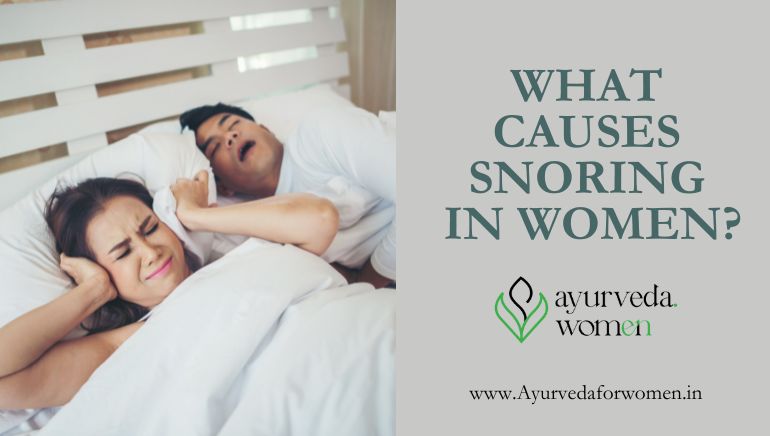What Causes Snoring in Women

What Causes Snoring in Women?
Snoring is caused by tissues in the airway vibrating as a sleeper breathes. Although snoring affects people of any sex or gender, several unique factors contribute to snoring in women and people assigned female at birth.
Women have historically been underrepresented in medical research, including research related to snoring. However, studies have begun to uncover how female sex hormones may affect a person’s risk of snoring, as well as how gender may play a role in how likely a person is to report this nighttime symptom.
We discuss conditions that increase the risk of snoring in women and people assigned female at birth, whether snoring in these groups is normal, and how to reduce or prevent snoring.
Snoring in women can be caused by a variety of factors, some of which are unique to women or are more common in them. These causes include:
Pregnancy
Hormonal changes, weight gain, and swollen nasal passages during pregnancy can lead to increased snoring in expectant mothers.
Menopause
A decrease in estrogen and progesterone during menopause may contribute to an increase in snoring in women.
Overweight and Obesity
Excess weight can lead to the accumulation of tissue in the neck, throat, and tongue, increasing the likelihood of snoring.
Nasal Congestion and Nose Issues
Blocked or narrow nasal passages due to colds, allergies, sinusitis, or other nasal conditions can trigger snoring.
Smoking, Alcohol, and Sedatives
These substances can relax the muscles of the upper airway and contribute to snoring.
Hypothyroidism
This condition, more common in women, can narrow the breathing passages and increase the risk of snoring.
Obstructive Sleep Apnea (OSA)
Snoring can be a symptom of OSA, a condition where the airway narrows and affects breathing during sleep. OSA can affect women but often goes undiagnosed.
It’s important to note that snoring can also occur in men and people of any gender due to similar factors. If snoring is persistent, disruptive, or associated with other health issues, it is advisable to consult a healthcare professional or a sleep specialist for a thorough evaluation and personalized recommendations.






